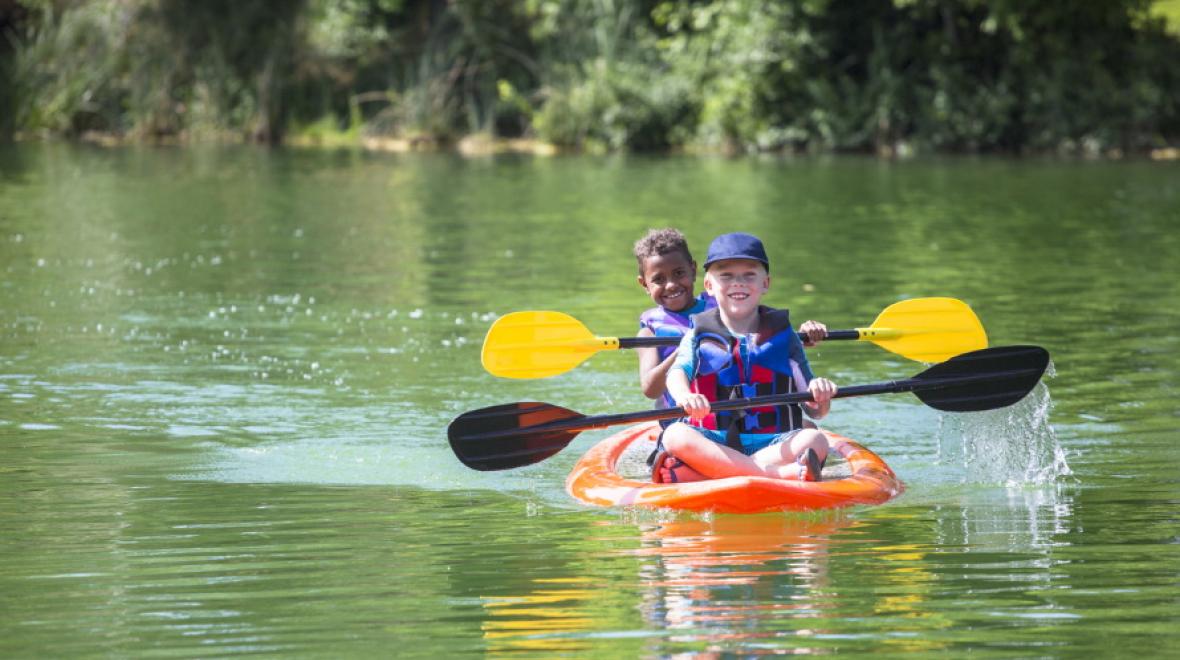
A mistake parents can make when choosing a camp is confusing their child's needs with their own needs. If you want your child to be happy at camp, focus on who he or she is rather than on who you were as a camper. Your goal is to create a harmonious relationship between each of your children and the camp experience, not for your child to follow in your well-worn hiking boots.
If going to camp is an option for your child, that's wonderful. But don't force camp on a child who is terrified of the idea. At the same time, feel free to plant the seed in your children's minds from an early age that when they are ready for camp it will be a fun, life-enhancing adventure.
If older siblings or friends of the family have gone to camp and enjoyed the experience, younger siblings may be eager to go. But if your child is not enthusiastic, feel free to wait until your child feels brave enough to make the leap.
Camp considerations
Feel free to share your camp experiences and what you got out of them with your kids, and invite others in the family to do the same. At the same time, communicate clearly your understanding that your child is not you, and that you like and respect the person your child is. Sending a child to camp to correct things about them is backwards. The person who needs to change their attitude in this scenario is the parent, not the child.
If you have worries or concerns about your child, don't send your child to camp to address those feelings. Find someone you can talk to so you can learn to accept your children for who they are and meet their range of needs. Kids who are secure in their own skin thrive at camp, whereas kids who are insecure and anxious may flounder.
A range of choices
Sending kids to camp may have been your idea, but in order for kids to feel good about the adventure, they need to buy in as well. The first question to ask yourself is, which types of camp are best suited to your child's physical, emotional and mental needs? Would day camp or overnight camp be the better choice at this developmental stage?
Parents may need to let go of the idea that what was good for them as children is good for their kids. What was good for you as a child may traumatize a sensitive child or a child with special needs. Strive to meet your kids where they are. Parents may experience some grieving in letting go of preconceived notions of sharing similar experiences with their children. But try to leave the past in the past, so you can make the healthiest choices for your family in the present.
For example, if you were a rugged and athletic child, these traits may have been widely admired, as they usually are. If your family of origin had a bias against sensitive or artsy kids, you will want to be aware of a possible unconscious tendency in yourself. You may also need to steel your mind against what others think about who your child is. You are not taking a poll. This is not the 1950s or even the 1980s. Try to view the camp landscape through the eyes of each child instead of through the eyes of others from an outdated point of view.
What if you are different from your child in even more profound ways than personality? What if the two of you have very little in common? Would you both crave the same types of camp experiences? Would you even be likely to choose the same camps? Probably not, and this is perfectly okay.
Be respectful
Children know intuitively when they are liked and accepted. They also know when parts of them are disliked or rejected. To look at a child and compare him or her to your childhood self or to siblings or peers is disrespectful and hurtful. To really see your child and accept him or her means loving and respecting your child as is. Each child is an individual with so much to offer the world. If you choose the best camp for your child, you can relax knowing the folks in charge will see the value in your child. When you recognize the value in your child, others see it, too.
Trying to force a child to be more like you, when the child is not you, may seem harmless and common in our society, but there is a cost. A child can feel when she is being criticized, so even if you are trying to bring the two of you closer together by putting your child through paces you were put through as a kid, your child may feel used and unacknowledged.
You cannot send a child who is not like you to camp and get a version of yourself back. Not only does camp not work this way, life doesn't work this way. Take a good, long look at each of your children. Resist the urge to see them as a version of yourself. None of them are you. There will never be another you in the whole wide world. Once you see, understand, and accept each of your children, then you can work together to choose the perfect camp for each of them.
Editor’s note: This article was originally published in March 2018, and updated in March 2021.
Summer Camp CentralSummer fun starts here! Browse dozens of Puget Sound programs and activities using our free camp finder tool, plus see our editor’s tips to maximize summer enrichment and fun! |











